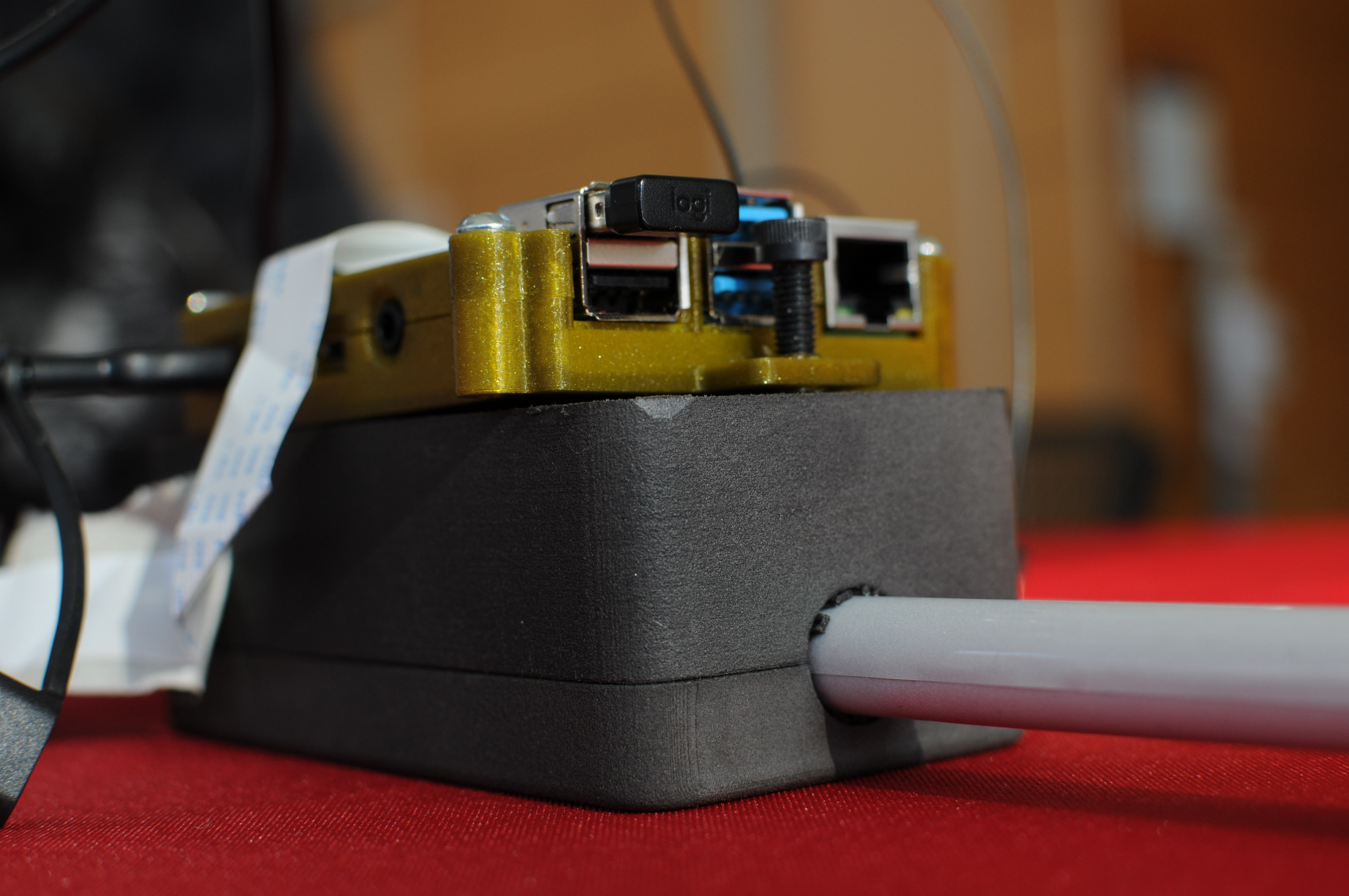In some ways, the odds were stacked against Chan Yoo, Wole Kiyesi and Mikell Williams from the start.
The senior design team proposed creating a solution for transit riders experiencing visual impairments under advisor Dr. Fauzia Ahmad. However, the project called for at least four computer and mechanical engineering students with an understanding of machine learning. Yoo and Kiyesi are electrical engineering majors, and Williams studies civil engineering.
As Chan Yoo told his teammates, “If we finish this project that really means we're built different.”
Their team was disrupted by staffing changes in advising and budgeting but still made impressive progress in developing the technology.
“Over the summer, we were on our own, learning our own path with trying to develop the project,” Williams said. “When August came around and it was Senior Design II, we had a lot of obstacles.”
The Ambulatory Public Transport Transfer Assistive Instrument for Visually Impaired People project proposed a cane-attachable camera that uses image processing and machine learning to detect which buses have arrived. The artificial intelligence (AI) technology would be able to read the signs on buses and alert the user when the bus they need is nearby.
Although the team members have had no experience in machine learning, Williams has been able to accomplish 70 percent accuracy in detecting buses after learning how to develop the algorithm. They are currently unable to detect bus numbers but still hope to improve upon that aspect of the project.
“Just two months ago we had nothing, and today we have an actual AI,” Williams said.
Yoo has drawn up circuitry schematics and there is a working model of the detection for buses and a prototype framework to protect the electronic aspects from damage, but the team feels like they’ve “hit a wall” in the progress of their design. To get past it, they plan to increase the performance of object recognition.
“We beat the odds even getting this far,” Williams said.
As Kiyesi said, “It’s crunch time,” and now, the team is taking all the components they have developed and aggregating them into a singular design before the competition.
Looking past the competition, the team looks forward to field testing to identify the efficacy of their work in supporting their target audience. Depending on the reactions, Yoo, Kiyesi and Williams could further pursue developing the assistive instrument beyond their time at the College of Engineering.
“Given the resources, we can test in the streets, and I think that that says a lot to just how quick we are and how adaptable we are with the challenges we've been given,” Williams said.

